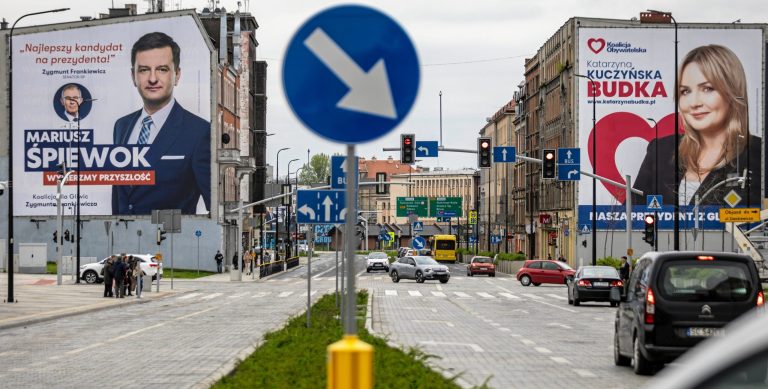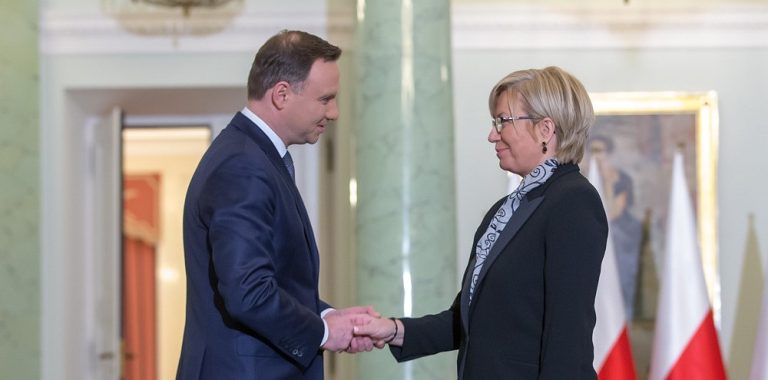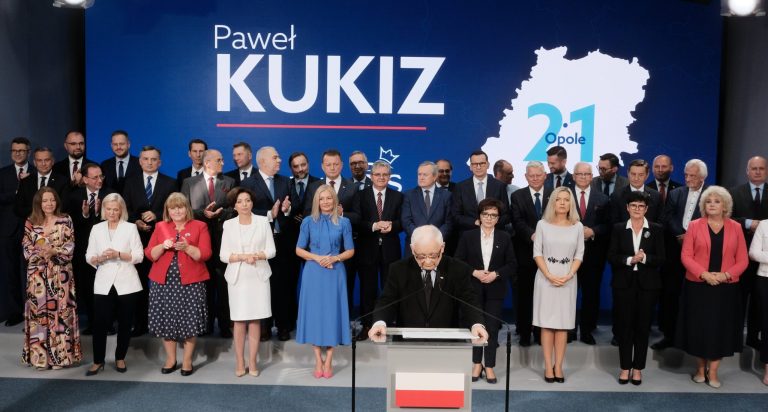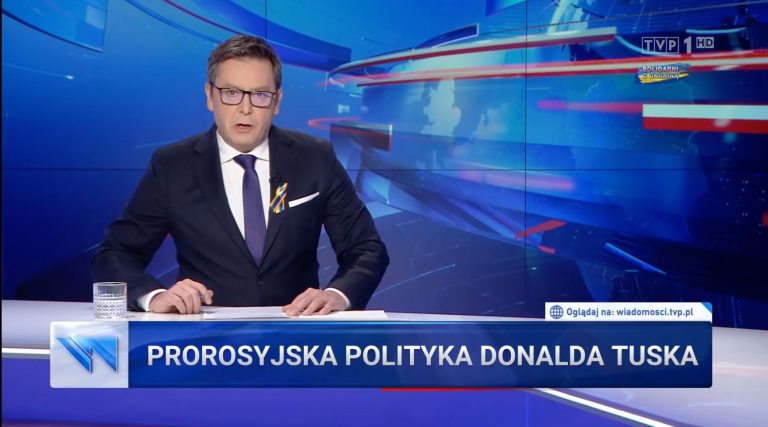Polish truckers block Ukraine border crossings, demanding restoration of prewar entry limits
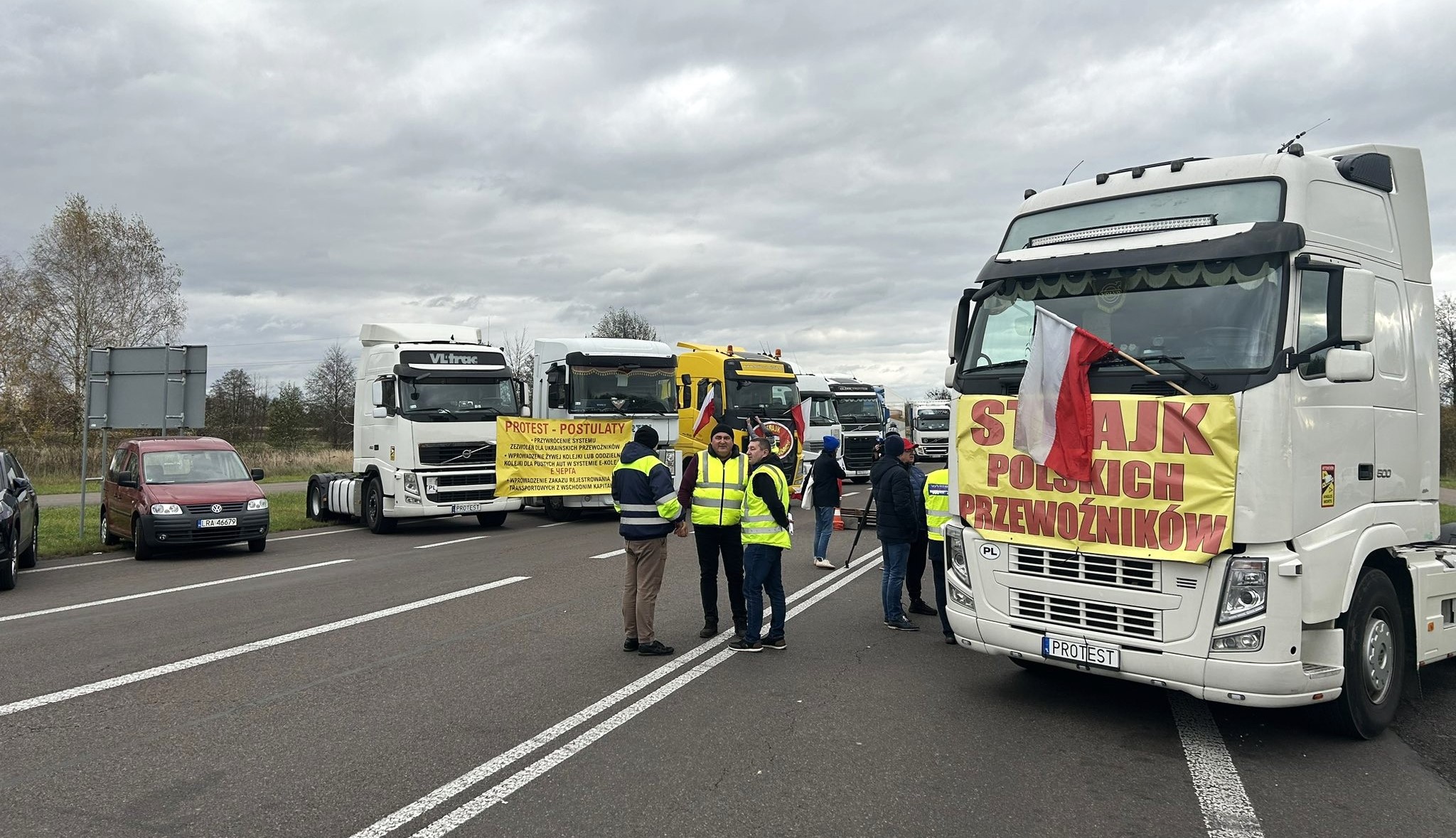
Polish truck drivers have been blocking border crossings with Ukraine in protest against what they say has been a “flood” of Ukrainian carriers since restrictions were loosened in the wake of Russia’s invasion.
Polish firms say their Ukrainian counterparts have unfair market advantages and have called for the restoration of the prewar entry permit programme. But Ukraine’s ambassador to Poland has called the blockade a “stab in the back” while his country fights Russian aggression.
Granice z Ukrainą zamknięte.
Czekamy na stronę rządową z propozycjami rozwiązań.
-Przywrócenie systemu zezwoleń.
-Zielony korytarz dla aut unijnych wracających na pusto z UA.
-Zawieszenie firm z kapitałem wschodnim do czasu wykazania pochodzenia kapitału. pic.twitter.com/TyHgdGPGqA
— Rafał Mekler (@MeklerRafal) November 6, 2023
The protesters have been demanding the reinstatement of the programme since May, when a previous blockade took place. Despite that, this summer the EU extended unrestricted freight movement with Ukraine until June 2024.
The latest round of protests started last week and could last until 3 January. Polish drivers have blocked three border crossings for truck traffic (Yahodyn-Dorohusk, Rawa-Ruska-Hrebenne, Krakyvets-Korczowa), letting through only one truck per hour.
As a result, almost 9,300 trucks are stranded in total on the Ukrainian side of the three border crossings, according to Ukrainian government website eCherha (eQueue). At Yahodyn-Dorohusk, the average estimated waiting time is 9 to 15 days, depending on the type of cargo.
According to the Ukrainian infrastructure ministry, normally an average of 40,000 to 50,000 trucks cross the border with Poland per month and most of them belong to Ukrainian fleets, reports Reuters.
🇵🇱carriers have started blocking three key cargo border crossing points between 🇺🇦 &🇵🇱. @minfrastucture cooperates with the @EU_Commission and the @MI_GOV_PL to resolve the situation. Our official position is that blocking the border harms the interests and economies of both… pic.twitter.com/vtWLAiqAyE
— Oleksandr Kubrakov (@OlKubrakov) November 6, 2023
Equipment for Ukraine’s army, humanitarian aid, volatile substances and livestock transports are exempted from the blockade and are let through by Polish truckers. Passenger cars and buses are also allowed through.
“We are not against the Ukrainian people, the Ukrainian state,” one of the protesters, Rafał Mekler, the owner of a trucking company, told Notes from Poland. “We support their efforts to fight the Russian invaders, but, as business owners, we have already reached our limits.”
According to Polish drivers, lower labour and business costs give Ukrainian companies an unfair advantage. As well as the reinstatement of the permit system, they are calling for the suspension of licences for companies established after the outbreak of war and an audit of their capital, and improved services at border crossings.
Dozens of Polish truckers are blocking one of the busiest border crossings with Ukraine.
They say rates for freight have collapsed since Ukrainian companies gained unrestricted access to the market https://t.co/DqSA6eLaaW
— Notes from Poland 🇵🇱 (@notesfrompoland) May 8, 2023
Polish drivers draw a comparison between their situation and that of Polish farmers, who protested for weeks against the influx of cheap Ukrainian grain in the spring, eventually leading the EU to agree to a temporary ban on imports.
The EU ban expired in September, but Poland unilaterally kept it in place, saying that, while it wants to help Ukraine with the transit of grain to third countries, banning imports was necessary to protect the Polish farmers.
“Polish farmers are afraid of cheap grain, and we are afraid of Ukrainian transport. We are flooded by their trucks,” Jacek Sokół, a participant in freight carriers protest, told financial news service Money.pl.
„Poland will certainly not agree to Ukraine joining the EU” if restrictions are not placed on its agricultural products, says Poland’s agriculture minister.
„In current conditions, Polish agriculture would never win against Ukrainian agriculture” https://t.co/ITVtVHdFlj
— Notes from Poland 🇵🇱 (@notesfrompoland) September 14, 2023
Ukraine’s ambassador to Poland, Vasyl Zvarych, however, yesterday called the protest a “painful stab in the back of Ukraine, which is suffering from Russian aggression”. He called for an end to the blockade.
Ukrainian infrastructure minister said later that day that Kyiv’s official position is that “blocking the border harms the interests and economies of both countries.”
“At the same time, we are ready for a constructive dialogue that will consider the interests of the carriers of both countries,” he added in a post on social media.
Blokowanie dróg do przejść granicznych 🇵🇱 z 🇺🇦 w Hrebennym, Dorohusku, Korczowej przez polskich przewoźników to bolesny cios w plecy Ukrainy, cierpiącej od agresji rosyjskiej. Zagrożone są korytarze solidarnościowe między Ukrainą a UE. Apelujemy o zaprzestanie blokady granicy!
— Vasyl Zvarych (@Vasyl_Zvarych) November 6, 2023
Poland’s infrastructure ministry told Notes from Poland that it had “sent a letter to members of the protest committee with an appeal to abandon the blockade of border crossings”.
It also noted that, because the decision to permit the entry of Ukrainian trucks had been made by the EU, the governments of individual member states cannot introduce their own permit systems.
Notes from Poland is run by a small editorial team and published by an independent, non-profit foundation that is funded through donations from our readers. We cannot do what we do without your support.
Main image credit: MeklerRafal/X

Alicja Ptak is senior editor at Notes from Poland and a multimedia journalist. She previously worked for Reuters.

